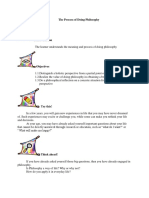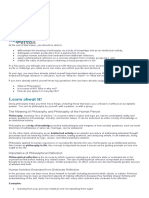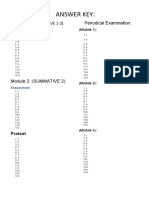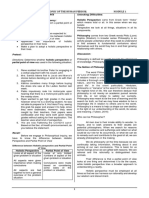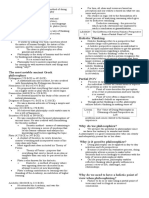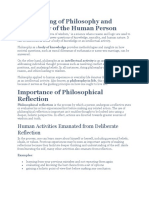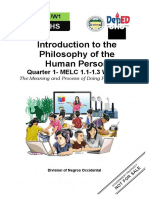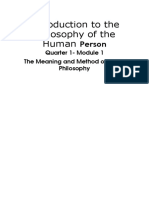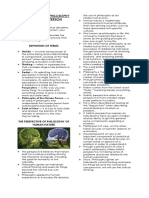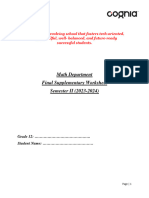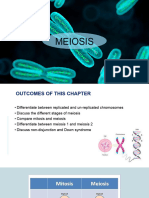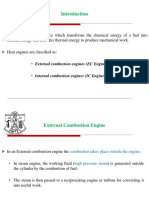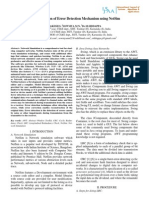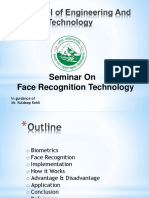DOING PHILOSOPHY – Lesson 3
Holistic thinking vs Partial thinking
Holistic Perspective – a perspective which sees a broader approach at understanding a reality, event, or
phenomenon often describe as looking at the “Big Picture” when describing and analyzing a situation or
problem.
Partial Perspective– a perspective that focuses on a specific aspect of a phenomenon or seen from a single
situation. The partial view is an important component of analytical thinking as an individual focuses on certain
areas or aspects of a problem to understand it.
Reflection requires a person to be willing to examine one thoughts, feelings, and action and to learn more
about one’s life and experiences. One can reflect almost on any subject.
• Philosophical Reflection, Is a process of deep and critical thinking about fundamental questions and concepts.
It involves contemplating abstract and complex ideas, seeking a deeper understanding of the world, and examining one’s
belief.
Key aspects:
1. Questioning
2. Critical thinking
3. Metaphysical exploration
4. Ethical considerations
5. Historical perspectives
• The study of the Philosophy of the Human Person helps us develop a critical reflection as we make our journey of
pursuing a meaningful life.
• Philosophy teaches and helps students to think critically, reason, evaluate, theorize, and justify.
• Critical thinking is the careful, reflective, rational, and a systematic approach to questions of very general
interest. Critical Thinking means understanding of philosophy and refraining from merely giving claims, but
through careful thought, one reasons through argumentations.
Critical Thinking is a lifelong process of self-assessment that further consists of:
⋆Defining, analyzing, and devising solutions
⋆Arriving at reasonable and informed solutions
⋆Applying understanding and knowledge to new and different problems
⋆Willingness to change one point of view
⋆Continually examining and re-examining ideas
⋆Willingness to say “I don’t know”
• Philosophy improves self-awareness and self-introspection.
• Philosophy helps students to be flexible, and grounds us in an intellectual tradition larger than our own opinion.
Hence, students become respectful of the individual differences in every person.
• The most lasting value of Philosophy of the Human Person lies in the vision and mission of every person which
gives direction and purpose in life.
• Vision is a statement that outlines an individual’s long-term aspirations, dreams, and the kind of life they want
to lead in the future.
Vision helps individual clarify their life’s purpose, set meaningful goals, and create a roadmap for their personal
development.
• Mission is a concise statement that defines an individual’s core values, principles and objectives in the present.
Mission provides a sense of direction and meaning to daily actions and decisions, aligning them with one’s values
and life purpose.
• Doing Philosophy can be applied in our everyday experiences and offer better outlook and perspective in life.
• Writing your Philosophy in life involves reflecting on your values(vision and mission), beliefs and principles.
Key aspects in writing your Philosophy in life:
1. Self -Reflect on your core values and beliefs- what you stand for.
2. Identify Influences- people or experiences that influence your philosophy.
3. List principles that guide your decisions and actions.
1
ARTHUR MANALO | Intro to Philo – Q1
� 4. Share personal experiences that shape your philosophy.
5. Organize your thoughts – you may use bullet points, paragraphs or any format that suits you.
6. Keep it concise - avoid complexity.
• Your Philosophy should guide your actions and decisions in life.
• Writing your Philosophy in life is a deeply personal and reflective process it should authentically represent who
you are and what you believe in.
Performance Task:
➢ Write your own personal vision and mission.
o Use only one-page long size bond paper.
o Handwritten and make it presentable.
2
ARTHUR MANALO | Intro to Philo – Q1
